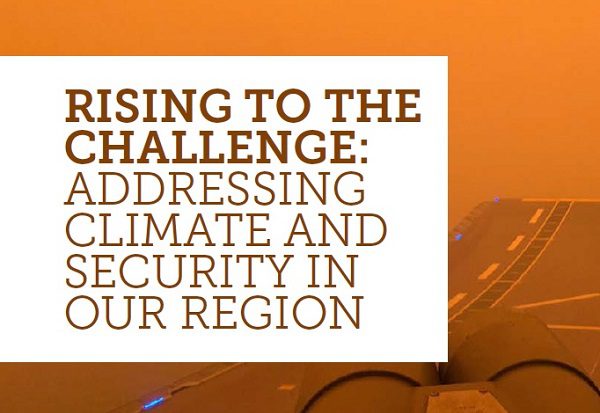Key findings
- Climate change increases the risk of conflict and Australia will not find lasting national security without adequately addressing it.
- Australia faces substantial climate and security risks on its doorstep and without urgent action, climate change will reduce security in our region.
- Failure to rise to the challenge of climate and security is already leading to a loss of geopolitical influence for Australia, particularly in the Pacific.
- Water has long been a contested resource in Asia and climate change is worsening the situation. Any conflict over water in our region could have profound consequences for Australia.
- Pacific Island Countries as well as Bangladesh, China, Vietnam, India and Indonesia face significant threats from sea level rise, which is likely to increase displacement and forced migration.
- The federal government’s financial support of the fossil fuel industry is actively undermining Australia’s national security.
- Australia is spending public money in ways that exacerbate climate change, including handing out billions of dollars in fossil fuel subsides.
- Australia failed to use COVID-19 to invest in a renewables-led recovery, spending less than two percent of its economic stimulus money on climate solutions. By comparison, Canada spent 74.5 percent and the UK spent more than 20 percent.
- Australia has fallen well behind the US, UK, Japan, New Zealand and other peers in analysis of climate and security risks.
- Climate change needs to figure prominently in Australia’s security thinking and investment, but this is not yet the case.
- In 2018, a Senate Inquiry called for a national climate and security threat assessment but this has not occurred, and climate change remains on the margins of Australia’s defence, foreign affairs and trade strategies.
- Other nations and international organisations are rapidly broadening traditional notions of national security in order to address climate security risks.
- Australia must act rapidly and decisively on climate change in order to maintain the collective security of our region.
- To address the root cause of climate-fuelled insecurity, the science is clear that Australia should reduce its emissions by 75% (below 2005 levels) by 2030 and achieve net zero by 2035. As a first step, Australia must at least match the updated commitments from our key allies, and pledge before Glasgow to at least half our emissions (below 2005 levels) by 2030.
- Australia can help accelerate decarbonization in our region by shifting from fossil fuel exports to clean exports and making smart use of development assistance.
- As part of the 2022-23 Federal Budget papers, the federal government should publish a statement on how the budget as a whole addresses the climate security challenge.
- The Federal Government should urgently complete an Integrated Climate and Security Risk Assessment.


